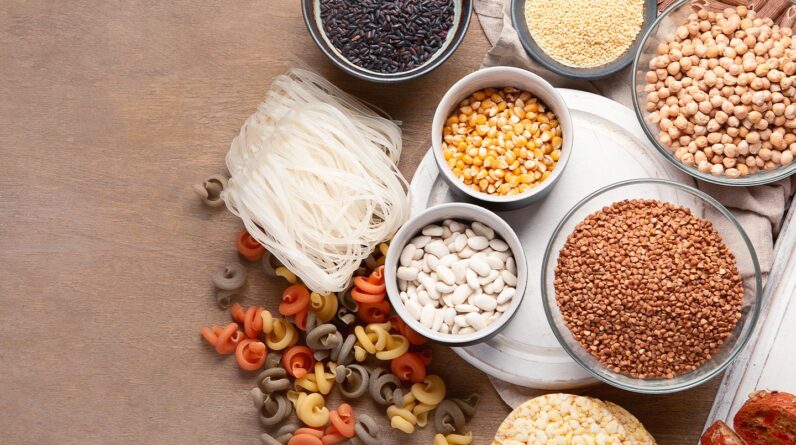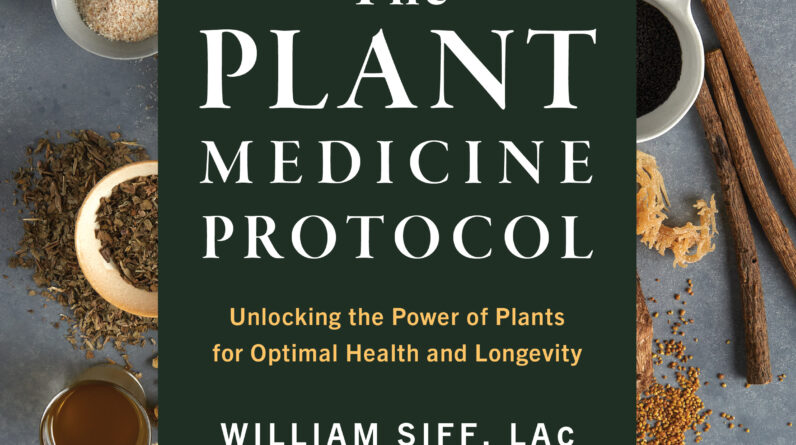
National Quinoa Day is celebrated on February 28th every year, honoring the nutritious and versatile seed. Quinoa, the mighty seed that has gained widespread popularity in recent years, is celebrated on February 28th as National Quinoa Day.
With its numerous health benefits and culinary versatility, this annual observance serves as a reminder of the significance of this superfood in our diets. Originating from the Andean region of South America, quinoa has been a staple for thousands of years due to its high protein content and essential amino acids.
It has gained international recognition for being gluten-free, easy to digest, and suitable for various dietary needs. National Quinoa Day encourages people to learn more about this nutrient-packed grain substitute and explore the delicious possibilities it offers in a wide range of recipes.
Quinoa: A Nutritious Superfood
Quinoa, an ancient grain, has gained immense popularity in health-conscious diets. Rich in nutrients, it is considered a superfood that offers numerous health benefits. Quinoa is not only a source of high-quality protein but also contains essential amino acids, vitamins, and minerals that contribute to overall well-being.
The rising popularity of quinoa can be attributed to its unique health benefits. It is gluten-free, making it suitable for individuals with gluten sensitivity or celiac disease. Quinoa is also a good source of fiber, which aids digestion and helps maintain a healthy weight.
What sets quinoa apart is its impressive nutrient profile. It is rich in antioxidants, which protect the body against oxidative stress and inflammation. Quinoa is also a source of magnesium, which is essential for maintaining healthy blood pressure levels and supporting cardiovascular health.
Incorporating quinoa into your diet is easy due to its versatility. It can be used as a substitute for rice or pasta, added to salads for a nutritious boost, or used in baking for a gluten-free alternative.
Overall, quinoa is a nutrient-dense grain that offers a wide range of health benefits. Its rising popularity in health-conscious diets is well-deserved, considering its numerous nutritional advantages.
Quinoa: An Excellent Source Of Plant-based Proteins
Celebrate National Quinoa Day with a protein-packed dish. Quinoa is a fantastic source of plant-based proteins, making it an excellent addition to any diet.
National Quinoa Day celebrates the goodness of this ancient grain that has gained popularity in recent years. Quinoa is an excellent source of plant-based proteins, making it a valuable addition to any diet. For vegans and vegetarians, quinoa is especially beneficial as it is a complete protein source, meaning it contains all nine essential amino acids that the body needs. This sets it apart from other grains, which usually lack one or more essential amino acids. When comparing the protein content of quinoa with other grains, it becomes evident that quinoa is a superior choice. Quinoa contains approximately 8 grams of protein per cooked cup, surpassing rice, barley, and wheat. Protein plays a crucial role in a balanced diet, aiding in muscle repair, boosting metabolism, and promoting satiety. Incorporating quinoa into your meals is an easy and delicious way to enhance your protein intake. So, why not celebrate National Quinoa Day by indulging in a quinoa-based dish?
Quinoa: Rich In Essential Vitamins And Minerals
Quinoa is not only a delicious grain but also a powerhouse of essential vitamins and minerals that promote overall health and well-being. This superfood contains an impressive array of vitamins that play vital roles in various bodily functions.
| Vitamin | Function |
|---|---|
| Vitamin A | Aids in maintaining healthy vision, skin, and immune system |
| Vitamin B2 (Riboflavin) | Supports energy production and helps in the formation of red blood cells |
| Vitamin B6 | Assists in brain development and regulation of mood |
| Vitamin E | Acts as an antioxidant, protecting cells from damage |
In addition to vitamins, quinoa is also rich in essential minerals that are important for the body’s proper functioning.
| Mineral | Function |
|---|---|
| Iron | Supports oxygen transportation in the blood |
| Magnesium | Aids in muscle and nerve function, as well as bone health |
| Zinc | Plays a role in immune function and cell growth |
| Phosphorus | Assists in energy production and bone maintenance |
Understanding the Role of Vitamins and Minerals in Maintaining Good Health
Vitamins and minerals are essential nutrients that the body needs to function properly. They are involved in numerous biological processes and contribute to overall health and well-being. Incorporating quinoa into your diet can ensure you are getting a wide range of vitamins and minerals to support your body’s needs.
Quinoa’s Role In Heart Health
Quinoa has gained significant attention in recent years due to its potential impact on cardiovascular diseases. Research suggests that incorporating quinoa into a heart-healthy diet may offer numerous benefits for lowering blood pressure and cholesterol levels. Quinoa is rich in heart-healthy nutrients such as fiber, magnesium, and potassium, which have been shown to support healthy blood pressure levels. These nutrients help relax blood vessels and improve blood flow, reducing the risk of cardiovascular diseases. Additionally, quinoa is a great source of plant-based protein, which can contribute to healthy cholesterol levels. High cholesterol levels are associated with an increased risk of heart diseases.
There are various ways to incorporate quinoa into a heart-healthy diet. Quinoa can be used as a nutritious base for salads, grain bowls, and side dishes. It can be cooked and added to soups or used as a substitute for rice or pasta. Including quinoa in your meals can help diversify your nutrient intake and promote heart health.
Quinoa: A Gut-friendly Grain
Quinoa, a versatile and nutritious grain, is gaining popularity for its gut-friendly properties. Its high fiber content contributes to improved digestive health by promoting a healthy gut microbiota. Fiber plays a crucial role in maintaining regular bowel movements and preventing constipation. Additionally, quinoa contains prebiotics that nourish beneficial gut bacteria, aiding in digestion and nutrient absorption.
Furthermore, quinoa has been used as a natural remedy for various digestive disorders. Its gentle nature makes it easily digestible, making it suitable for individuals with sensitive stomachs. Quinoa also contains anti-inflammatory properties, which can help reduce inflammation in the gut and alleviate symptoms associated with conditions like irritable bowel syndrome (IBS) and Crohn’s disease.
Whether incorporated into salads, stews, or enjoyed as a side dish, quinoa is not only a tasty addition to meals but also a grain that promotes a healthy gut. Its fiber-rich content and ability to support a balanced gut microbiota make it an excellent choice for those seeking better digestive health.
Quinoa: A Versatile Grain For Weight Management
National Quinoa Day celebrates the incredible versatility of quinoa as a grain that can be incorporated into a healthy diet. Quinoa is an excellent choice for those looking to manage their weight effectively. One of the reasons is its low glycemic index, which means it has a minimal impact on blood sugar levels. This is especially beneficial for individuals who need to control their blood sugar, such as those with diabetes or those aiming for weight loss.
When it comes to weight management, quinoa’s high fiber content and high protein content make it a satisfying choice that keeps you fuller for longer, helping to reduce cravings and the desire to overeat. Additionally, quinoa is gluten-free and rich in essential vitamins and minerals, making it a nutritious addition to any meal plan.
Incorporating quinoa into a balanced diet for weight loss can be done in various ways. It can be enjoyed as a side dish, added to soups or salads, or used as a base for veggie bowls. Its neutral taste also allows it to be versatile in both savory and sweet dishes, making it a go-to grain for a wide range of recipes.
Quinoa: An Antioxidant Powerhouse
National Quinoa Day is a celebration of one of nature’s true superfoods. Quinoa, often touted as an antioxidant powerhouse, provides numerous health benefits. Antioxidants play a vital role in preventing chronic diseases by neutralizing harmful free radicals in the body. Quinoa is packed with these powerful compounds, including quercetin and kaempferol, which have been linked to reducing inflammation and fighting oxidative stress. Consuming quinoa regularly can support heart health, improve digestion, and even aid in weight management. Additionally, the high antioxidant content in quinoa can aid in boosting immunity and supporting overall wellness. Including quinoa in your diet is a simple and delicious way to harness the antioxidant power and reap the potential health benefits it offers.
Quinoa: A Gluten-free Alternative For Celiac Disease
Celebrate National Quinoa Day with a gluten-free alternative ideal for those with Celiac Disease. Quinoa offers a nutritious and versatile grain option for those seeking dietary variety.
Quinoa As A Safe Option For Individuals With Gluten Intolerance
Quinoa is a gluten-free grain that has gained popularity as a safe option for individuals with celiac disease or gluten intolerance. Its nutritional benefits make it an excellent choice for those looking to incorporate it into a gluten-free diet. Quinoa is high in protein, containing all essential amino acids, making it a complete protein source. It is also a good source of fiber, vitamins, and minerals, including iron, magnesium, and zinc.
The Nutritional Benefits Of Quinoa For Individuals With Celiac Disease
Quinoa is not only gluten-free but also rich in nutrients that are often lacking in a gluten-free diet. It provides more protein compared to other grains and is a good source of fiber, which aids digestion and helps maintain bowel regularity. Quinoa is also packed with essential vitamins and minerals, such as B vitamins, iron, magnesium, and zinc, which are important for overall health and wellbeing.
Incorporating Quinoa Into A Gluten-free Diet
Adding quinoa to a gluten-free diet is easy and versatile. It can be used as a substitute for rice or pasta in dishes such as salads, stir-fries, and soups. Quinoa can also be cooked and enjoyed as a standalone side dish. Its mild, nutty flavor adds a pleasant taste and texture to a variety of recipes. With its numerous health benefits and gluten-free nature, quinoa is an excellent choice for those with celiac disease or gluten intolerance.
Quinoa: Sustainable Farming And Environmental Impact
The Environmental Advantages Of Quinoa Cultivation
Quinoa farming offers numerous benefits to the environment. Firstly, it reduces soil erosion due to its extensive root system that prevents soil from being washed away. Additionally, quinoa requires minimal water compared to other crops, making it a more sustainable choice in regions facing water scarcity. Furthermore, it doesn’t require pesticides or chemical fertilizers to thrive, which means that harmful chemicals aren’t released into the environment during its cultivation.
Choosing ethically sourced quinoa also contributes to a positive environmental impact. By supporting farmers who follow sustainable practices and prioritize fair trade, consumers can encourage responsible farming techniques and help protect ecosystems. Additionally, buying quinoa produced locally can help reduce the carbon footprint associated with long-distance transportation.

Credit: m.youtube.com
Frequently Asked Questions For National Quinoa Day
Is It Good To Eat Quinoa Every Day?
Eating quinoa every day is beneficial as it’s a nutritious grain packed with protein, fiber, and essential vitamins. It helps maintain weight, improves digestion, and promotes heart health. Enjoying quinoa as part of a balanced diet can support overall well-being.
Why Is Quinoa Famous?
Quinoa is famous due to its high nutritional value, versatility in cooking, and gluten-free nature. It is packed with essential nutrients, including protein, fiber, and minerals, making it a healthy choice for many diets. Furthermore, it can be used in various recipes, such as salads, side dishes, and even desserts.
Is Quinoa A Grain Or A Seed?
Quinoa is a seed, not a grain.
Where Did Quinoa Come From Originally?
Quinoa originated from the Andean region of South America.
Conclusion
Celebrate National Quinoa Day by incorporating this superfood into your diet. Quinoa offers a host of health benefits, from being a complete protein source to providing essential vitamins and minerals. With its versatility and delicious taste, quinoa can be easily incorporated into breakfast, lunch, and dinner recipes.
So, don’t miss out on the chance to explore the wonders of quinoa and add it to your culinary repertoire. Start exploring the world of quinoa today!






